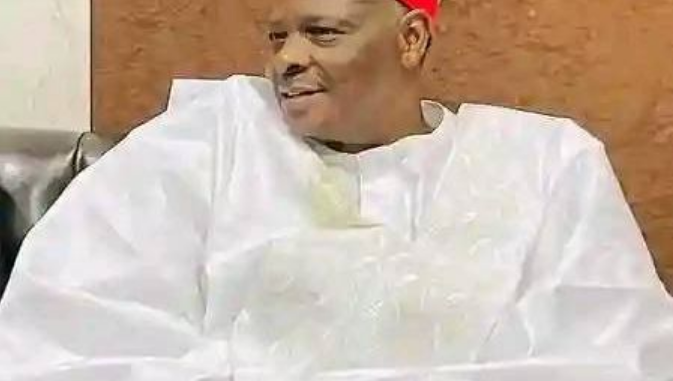
As Nigeria gears up for the 2027 general elections, Rabiu Musa Kwankwaso, national leader of the New Nigeria People’s Party (NNPP) and a former Kano State governor, has accused certain Northern elders of spreading falsehoods and manipulating political processes. Kwankwaso, who contested the 2023 presidential elections under the NNPP, said their actions were fostering division and damaging the principles of democracy....CLICK HERE TO READ THE FULL ARTICLE➤
Speaking in an interview with BBC Hausa, Kwankwaso expressed frustration over the undue influence exerted by some leaders in the North. He described their behavior as detrimental to unity and transparency in selecting competent leaders. “This oppressive thing they are doing is causing discord in the community. Whatever you do, do it based on the truth,” Kwankwaso said.
Allegations of Falsehood
Kwankwaso accused certain Northern figures of spreading baseless claims about regional political consensus. He revealed that some of these individuals falsely assert that the North has unanimously endorsed particular candidates for key positions. “All these people are not more than two or three,” he said. “But you see a man going and saying lies, instead of going to Port Harcourt or Abuja to go and promote us, who are their children, they go and show favouritism.”
The former governor also criticized the culture of favouritism in candidate selection, warning that it undermines public confidence in the electoral process. “The elders, some of them are our parents and brothers, especially in this area, here in the North, they shouldn’t show favouritism in bringing out candidates,” he added.
Denial of Secret Agreement
Addressing rumors of a supposed agreement between himself and two other former presidential candidates—Atiku Abubakar of the People’s Democratic Party (PDP) and Peter Obi of the Labour Party (LP)—Kwankwaso categorically dismissed the claims. The alleged pact purportedly stipulated a power-sharing arrangement where Atiku, Kwankwaso, and Obi would each serve a single presidential term.
“This issue really hurts me,” Kwankwaso said. “It is said that the elders are lying; they are saying things that have not been done. They were told that I agreed that Atiku will serve for four years, I will also serve for four, and Peter Obi will serve for eight years. This pact does not exist; it has not been made.”
Kwankwaso further disclosed that he had heard rumors of meetings organized by Atiku’s camp with local leaders, including religious scholars, to discuss 2027 strategies. He condemned these tactics as dishonest and misleading. “I was told that about forty-five Mallams were gathered, and they are telling the people. But there is no such thing. I am not at all happy about this thing,” he stated.
A History of Divisions
Kwankwaso’s comments shed light on a recurring issue in Nigerian politics—the use of regional or ethnic sentiments to manipulate election outcomes. Historically, Nigeria’s political elite have often leveraged such strategies to consolidate power or undermine rivals, frequently at the expense of national unity.
During the 2023 presidential elections, similar allegations of interference emerged, with some Northern elders claiming to represent regional interests in endorsing specific candidates. Such practices, analysts argue, hinder the democratic process by discouraging merit-based competition and alienating voters.
Implications for Democracy
Kwankwaso’s critique underscores the tension between established political figures and emerging leaders in Nigeria’s electoral landscape. His insistence on allowing voters to freely choose their leaders reflects growing public demand for fairness and accountability in governance.
“For the North, and indeed the entire country, to progress, elders must play a constructive, rather than divisive, role,” said Musa Yakubu, a political analyst based in Kaduna. “Kwankwaso’s statement is a wake-up call for transparency and inclusivity in our electoral process.”
A Call for Truth
Kwankwaso’s remarks serve as both an admonition and a plea. He emphasized that honesty should be the foundation of political discourse and decision-making. “Whatever you do, do it based on the truth,” he reiterated during the interview. By challenging the actions of Northern elders, Kwankwaso has brought attention to the importance of eliminating favoritism and promoting fairness as Nigeria heads toward another critical electoral cycle.
The 2027 elections are shaping up to be a litmus test for the country’s democracy. Whether political leaders heed Kwankwaso’s call for honesty and equity could significantly influence Nigeria’s trajectory in the years to come. ...CLICK HERE TO READ THE FULL ARTICLE➤
Be the first to comment